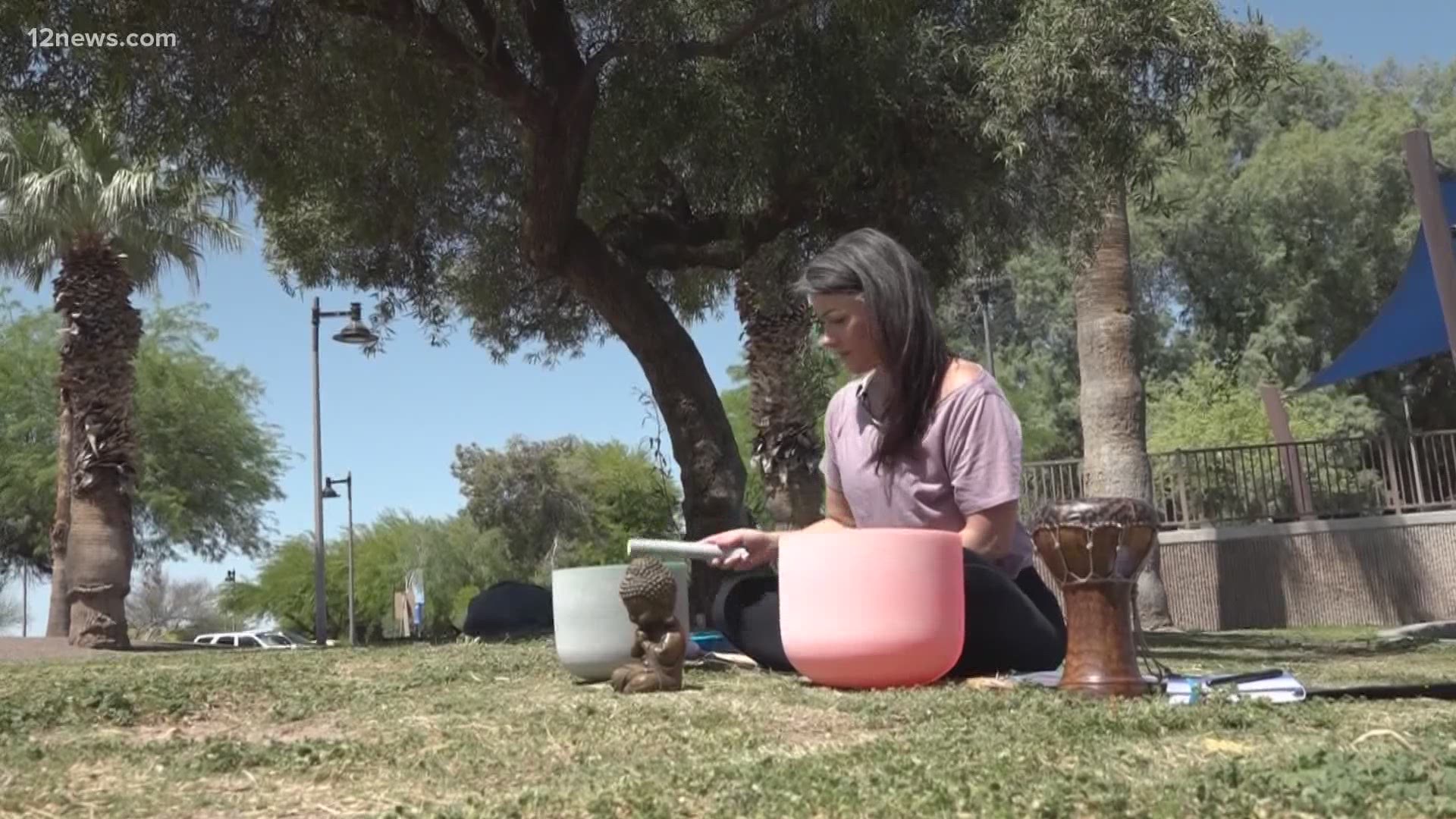PHOENIX — The pandemic has more of us showing signs of stress. And some people have turned to the psychological technique of mindfulness to deal with stress, anxiety, and depression.
Forty-two percent of those who responded to a CDC survey in December 2020 reported anxiety or depression symptoms. That's an increase of more than 200% from the 2019 average.
One method of finding peace in a world of unknowns is mindfulness.
Debra Caron is a wellness expert and founder of deMysticism. It's a resource that helps people improve mindfulness. She said she has seen an increase in people turning to work like hers for advice.
Research backs Caron's observations. Sage Journals reported online search results for mindfulness and COVID increased by 52% from May to August of 2020.
"They needed something else to fulfill them and that's where they've turned to, that mindfulness piece to really understand what is that thing that's going to make me feel good in this chaotic world right now," Caron said.
Caron helps those struggling mentally to turn their attention inward to find the root of their struggles. At the same time, they work to become more aware of the present moment.
"So really digging into your 'why'," Caron said. "You're intentionality behind everything you're trying to achieve in life."
Caron works her therapies in a variety of ways.
"We're all unique," Caron said. "Just because it works for me, or it works for you, it might not be the thing that's going to help somebody else."
Caron uses different techniques such as sound bath therapies, custom meditations, yoga movement, tapping into her client's subconscious and more.
They're practices, one of her clients Kathy Paul, said she's growing from.
"I'm being mindful of myself and others and understanding that it's ok sometimes to do what I need to do," Paul said. "You don't always have to take care of everything else."
A recent study published in PLOS Medicine found mindfulness programs compared with doing nothing, have helped reduce anxiety, depression and stress. They can also increase feelings of well-being.
However, community-based programs like fitness work just as well.
There is something to this mindfulness boom, but it's not a one-size-fits-all situation. You have to try it out to see if it works for you.
Subscribe to the 12 News Youtube Page for more stories like this and the latest news on what's happening in Arizona.
Other Resources
If you are in need of immediate help, you can call 911 or reach the National Suicide Prevention Lifeline at 1-800-273-8255 or chat with someone online.
American Foundation for Suicide Prevention
This group offers support to those struggling as well as raises money and works with advocates to advance suicide prevention efforts.
More on how to become an advocate
Learn about AFSP Arizona, which was chartered in 2010.
AHCCS Suicide and Crisis Hotlines
These Arizona Health Care Cost Containment System hotlines are offered by county by the state's Medicaid agency:
- Maricopa County served by Mercy Care:
1-800-631-1314 or 602-222-9444 - Cochise, Graham, Greenlee, La Paz, Pima, Pinal, Santa Cruz and Yuma Counties served by Arizona Complete Health - Complete Care Plan:
1-866-495-6735 - Apache, Coconino, Gila, Mohave, Navajo and Yavapai Counties served by Steward Health Choice Arizona:
1-877-756-4090 - Gila River and Ak-Chin Indian Communities:
1-800-259-3449 - Salt River Pima Maricopa Indian Community:
1-855-331-6432
NAMI Southern Arizona
The National Alliance on Mental Illness in Southern Arizona offers a crisis hotline, as well as information on crisis facilities and other resources.
Crisis resources for the greater Tucson area:
If you or a loved one are in immediate crisis, call the Community Wide Crisis line: (520) 622-6000 or 1 (866) 495-6735.
If you need to call 911, NAMI says to ask for a CIT (Crisis Intervention Trained) officer who is equipped in handling a mental health crisis situation or ask for the MAC (Mobile Acute Crisis) Team.
Click here for more information
Walk in crisis support is available 24 hours a day, 7 days a week at the Crisis Response Center, 2802 E District St in Tucson (South of AJo Way and Country Club)
Emerge Crisis Line for domestic violence and sexual assault victims:
(520) 795-4266 or 1 (888) 428-0101

